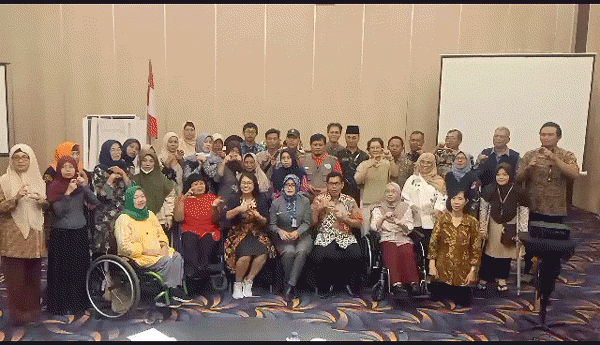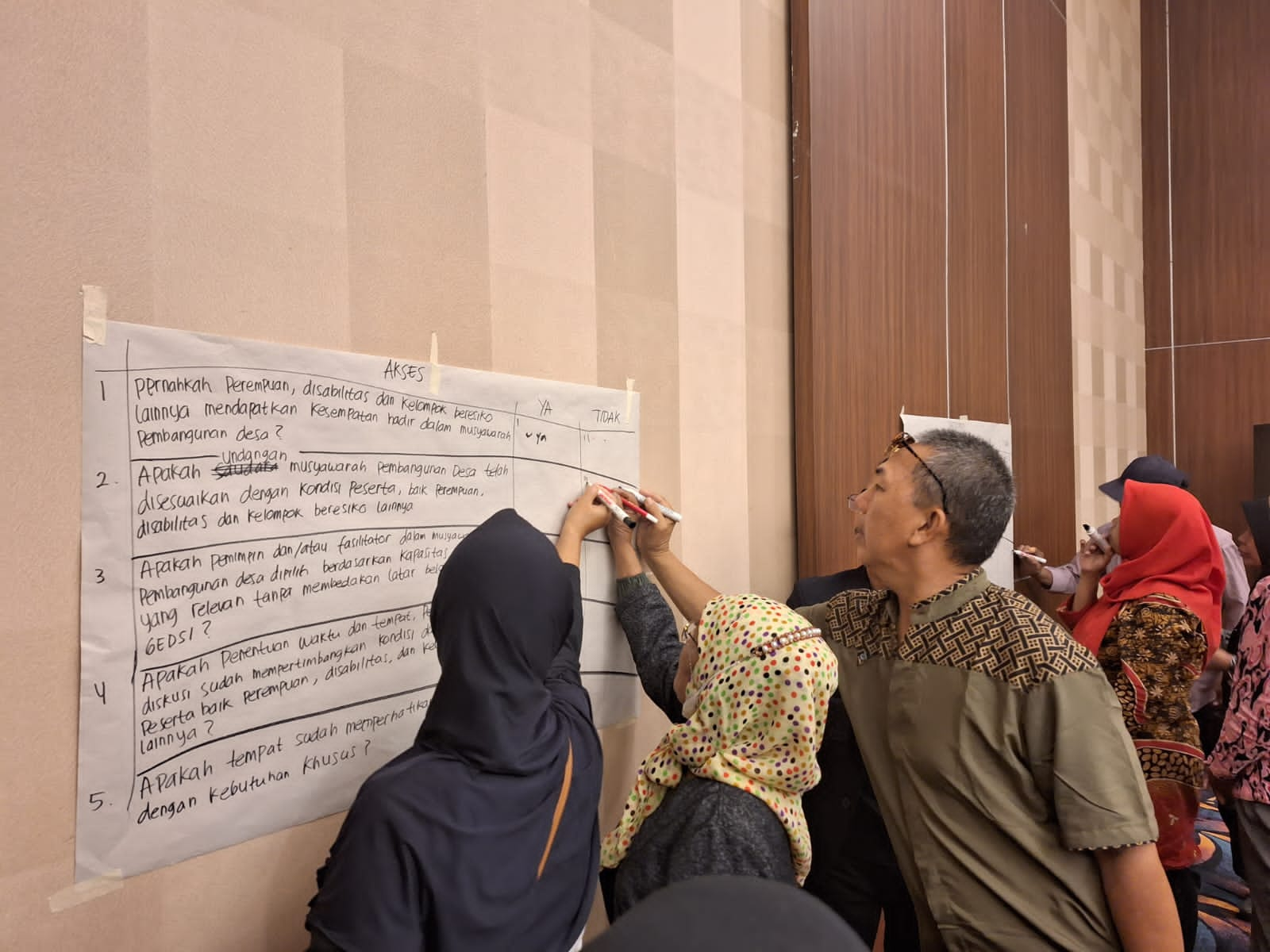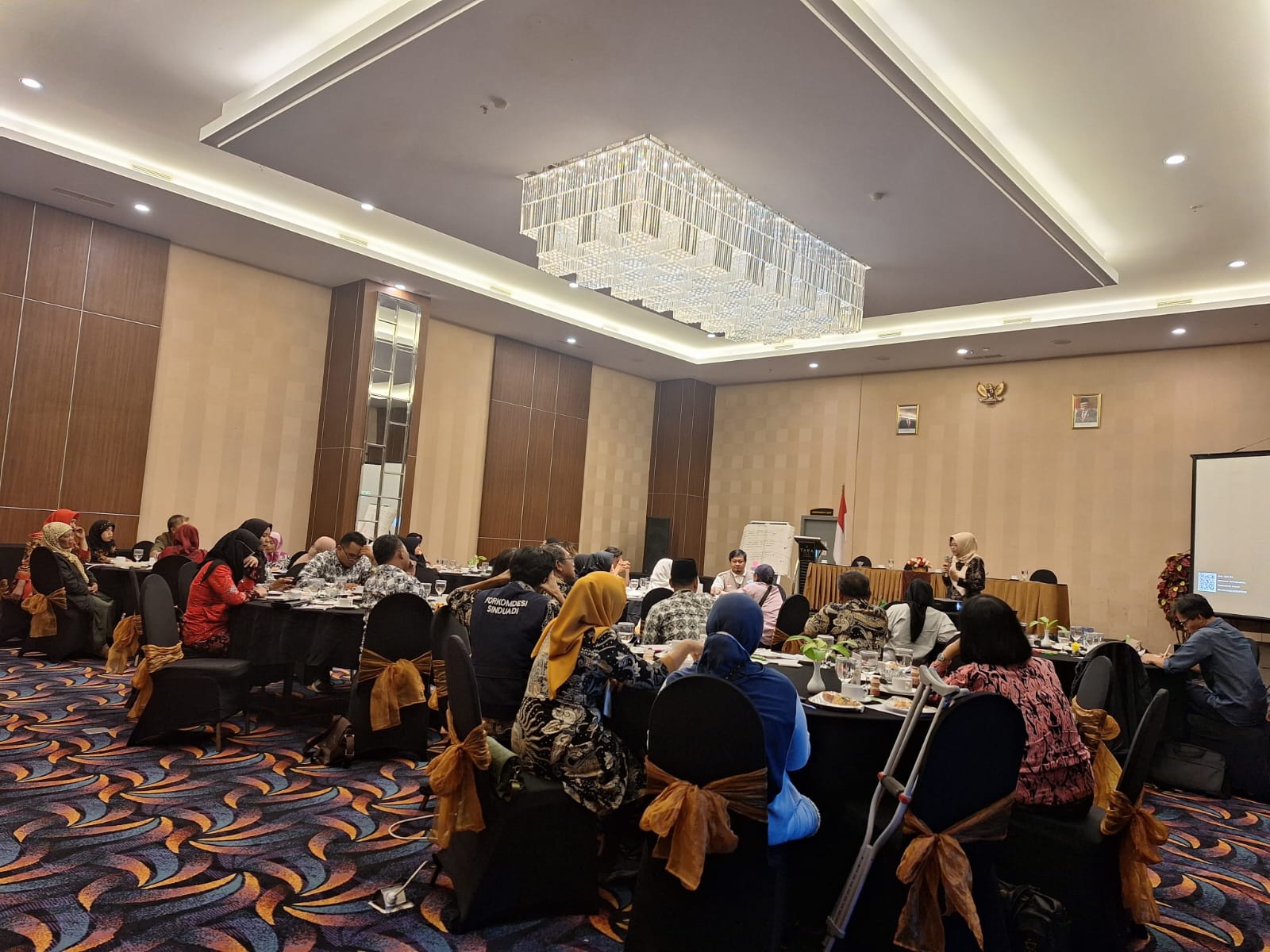The Disability Rights and Climate Justice (DRCJ) Advisory Board at Global Greengrants Fund is a global board founded in 2022 that encourages intersectional connections between disability rights and climate justice movements. In this blog series, we hear directly from those grantee partners, digging deeper into their contexts, their strategies for supporting disability rights and environmental justice, and their visions for a just world.
Article by Marianne Menut, Disability Rights and Climate Justice Board Learning Coordinator

Climate change and disability in Indonesia
“In dealing with the impacts of climate change, it is important to involve people with disabilities. The issue of climate change is a collective one and must therefore be handled collectively. However, to participate, people with disabilities need to understand climate change issues. Therefore, it is necessary to provide training about it.”
— Dwi Suka Sulistyaningsih, Executive Director of CIQAL, Woman with physical disabilities
Indonesia faces myriad climate change hazards such as rising sea levels, tidal floods, coastal erosion, storms, hurricanes, and rising sea temperatures. The country also has growing crop failures due to these increasing natural disasters and rising air temperatures. The growing scarcity of resources across Indonesia leads to soaring food prices and therefore threatens local food security, or access to sufficient and nutritious food.* This makes life increasingly difficult for people with disabilities who are, on average, typically more susceptible to poverty. In this way, climate change disproportionately impacts people with disabilities in Indonesia, and yet they receive little attention from climate movements.
Global Greengrants grantee partner Center for Improving Qualified Activity in Live of People with Disabilities (CIQAL) is an Indonesian organization dedicated to improving the quality of life and resources of people with disabilities. CIQAL strives to ensure equal opportunities for disabled people in their professional and social lives. In Sinduadi, a village on the Indonesian island of Java, CIQAL has identified food sovereignty as a potential solution to mitigate the disproportionate effects that climate change has on the living conditions of persons with disabilities in the area. Food sovereignty can be defined as “the right of Peoples to healthy and culturally appropriate food produced through ecologically sound and sustainable methods, and their right to define their own food and agriculture systems.”** It is a pivotal part of creating just environmental futures.
CIQAL’s Food Sovereignty Program for Persons with Disabilities Facing Climate Change Impacts

For their work in Sinduadi, CIQAL chose to lean on local expertise by partnering with Forum Komunikasi Disabilitas Sinduadi (FORKOMDESI), a local community that comprises 236 persons with various disabilities, such as physical disabilities, visual disabilities, hearing disabilities, intellectual disabilities, and mental disabilities. CIQAL trained members of FORKOMDESI not only about the connections between rising food prices and climate change, but also about how they can access agricultural resources and advocate for their rights through the climate crisis. This educational and solution-based program aimed to reduce poverty and increase food sovereignty among persons with disabilities affected by climate change. The 7-month program started in June 2023 and included a total of six training sessions for persons with disabilities. Sessions were held in-person in a wheelchair-accessible venue with a sign language interpreter present. Each training session dealt with a specific topic, including: the impacts of climate change, the importance of food sovereignty advocacy strategies, and the importance of social protection relating to the impact of climate change, all tailored to meet the specific realities and needs of people with disabilities. The final session was a map design workshop where participants identified local agricultural resources in Sinduadi, as well as the weaknesses of the local agricultural and food systems. This final workshop stressed practical applications for participants to exercise their food sovereignty that built on the theoretical knowledge they gained during the training.
Both organizations also worked with the Sinduadi government to draw attention to the importance of involving people with disabilities in the design and implementation of climate adaptation policies.
Local (and seemingly small) efforts like these are pivotal parts of the climate movement, as they have ripple effects across communities that help to create a long-term foundation of support for people with disabilities to advocate for themselves.
Combating social isolation and fostering activism

In addition to providing trainees with valuable knowledge about climate change and disability, the training sessions offered disabled Sinduadi residents the opportunity to meet members of their community and network. Studies have shown that people with disabilities disproportionately suffer from emotional loneliness and social isolation compared to their able-bodied and able-minded peers due to systemic barriers that prevent them from engaging in many social activities. Initiatives like CIQAL’s enhance disabled people’s participation in social life and foster community-building through activism.
One participant put it this way:
“My name is Daryati. I live in Pogungrejo, Sinduadi. I am physically disabled. I have participated in CIQAL activities twice. I’m happy to make friends, gain insight, and gain knowledge. I also now know what climate change is, and what programs Sinduadi Village has. My hope is that FORKOMDESI will receive more attention and be given a budget by the village.”
Training communities for long-term empowerment
The project drew attention to the specific realities of climate change for persons with disabilities and encouraged long-term connections between CIQAL, FORKOMDESI, and the local government. By involving the Sinduadi government in this initiative, CIQAL and FORKOMDESI were able to advocate for disability rights, and the village committed to involving persons with disabilities in the planning and implementation of its development programs, including climate change adaptation plans.
Recently, CIQAL also developed a handbook titled “Panduan Perlindungan Sosial bagi Penyandang Disabilitas Terdampak Perubahan Iklim di Tingkat Desa,” or “Guidance on Social Protection for Persons with Disabilities Impacted by Climate Change on the Village Level,” to which FORKOMDESI and the Sinduadi government provided valuable inputs. The book was printed in December 2023 and is accessible in regular print, braille print, and in digital form. CIQAL’s “Participation Program for Persons with Disabilities in Anticipation of Climate Change Impact through Food Sovereignty” therefore enabled the creation of strong connections between CIQAL, FORKOMDESI, and the Sinduadi government, which will hopefully result in more inclusive policies and initiatives in the future.
Thanks to the work of CIQAL and FORKOMDESI, people with disabilities in Sinduadi now have key information that will help them advocate for their rights in a climate crisis context. The Disability Rights and Climate Justice Board at Global Greengrants Fund is proud to support grassroots initiatives like CIQAL that build more inclusive climate movements and create a world that values justice and care for all and for the planet.
—
*https://www.worldbank.org/en/topic/agriculture/brief/food-security-update/what-is-food-security
**https://weseedchange.org/food-sovereignty/
